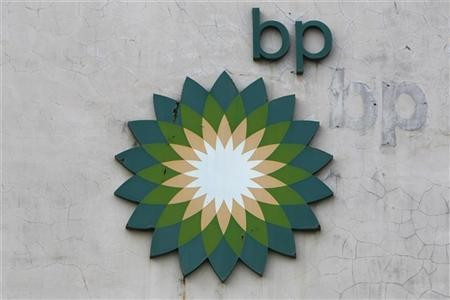BP To Sell $2.5bn California Refinery and Assets to Tesoro

Independent refiner Tesoro is snapping up BP's refining and marketing business in Southern California as well as the value of the refinery's inventory at the time of closing, for an estimated total of $2.5bn, marking the latest in a long line of sales by the trouble oil major.
Tesoro will pay $1.18bn for BP's refining business in Carson, California, plus the value of the refinery's inventory at the time of closing, which is currently valued at $1.3bn.
The high complexity refinery is located south of Los Angeles and produces 266,000 barrel-per-day. The deal includes a retail marketing network of about 800 dealer-operated gas stations and the 51 percent ownership in a company-operated 400 megawatt cogeneration facility, and other assets.
BP is still looking to broaden its horizons by exploring new territory and setting up new production terminals, in tandem with selling assets.
It already expects the delivery of major projects, focused on 15 new higher-margin upstream projects scheduled to begin production by the end of 2014. Six are scheduled to start up in 2012, and two - Galapagos in the Gulf of Mexico and Clochas-Mavacola offshore Angola - are now on stream.
Six rigs are now operational on BP fields in the Gulf of Mexico, with a total of eight expected to be in place by year end.
The group says it continues to reshape and focus its portfolio and since the beginning of 2010 has now entered into agreements to sell assets with a value of $24bn.
Total divestments since 2010 are targeted to reach $38bn by the end of 2013.
In exploration, during the second quarter this year, BP acquired 43 leases in the Gulf of Mexico, which are awaiting regulatory approvals.
It also resumed operation of its long-term exploration contracts onshore and offshore in Libya.
BP Needing to Raise Cash
The mass sell-off of assets was prompted after the Gulf of Mexico oil spill led to a spiral of litigation costs and payments and billions wiped off its share price.
It is currently courting bidders for its 50 percent stake in Anglo-Russian joint venture TNK-BP and the sale is tipped to result in "north of $25bn" for the company that is looking to cut costs, shore up its balance sheet for litigation purposes and eventually deliver a higher return to shareholders.
BP has sold a number of assets to shore up cash, worth $23bn to date. It plans to raise $38bn in total before the end of 2013, after an explosion on BP's Horizon rig on the 20 April 2010, resulted in one of the largest oil spills and environmental disasters in history.
While the Gulf of Mexico oil spill resulted in an environmental disaster, it also caused colossal damage to the group's reputation and earnings. Even two years on, BP is still feeling the repercussions of the incident.
BP still faces significant legal liability for the disaster in the United States even after agreeing with the US Department of Justice to pay at least $7.8bn deal to victims of the explosion.
The UK group said in its results statement that it expects to increase operating cash flow by 50 percent from 2011 levels in 2014, in a $100 a barrel oil price environment and is expected to be driven both by the completion of contributions into the Gulf of Mexico Trust Fund, by the end of 2012.
"Moving into 2013, we expect earnings momentum to build as we complete payments into the Trust Fund, as high-value production comes back on line, and as the impact of new projects ramps up," said Dudley.
By the end of the second quarter, BP had paid a total of $8.8bn in individual and business claims and government payments arising from the Deepwater Horizon incident.
The cash balances in the Trust and the Qualified Settlement Funds at June 30, amounted to $10.1bn, with $17.9bn contributed in and $7.8bn disbursed.
Disappointing BP Earnings
BP, Europe's second-biggest oil company booked nearly $5bn in accounting charges linked to its US shale gas fields and suspended its Liberty offshore oil project in Alaska, according to its earnings statement at the end of July this year.
BP posted a $1.4bn net loss for the three months ending in June, compared to $5.7bn last year, following the dwindling value of US shale gas assets and post-Gulf of Mexico oil spill payments. It also reported a decline in net-income in its oil production from joint Anglo-Russian joint venture TNK-BP.
BP also reported a $1.7bn of post-tax Gulf of Mexico expenditure, which pushed operating cash flow for the second quarter to $4.4bn, compared to $3.4bn in the previous quarter.
Overall, underlying replacement cost profit for the quarter, adjusted for non-operating items and fair value accounting effects for the second quarter 2012 showed significant decline.
BP's adjusted second quarter profit for the second quarter this year stood at $3.7bn, compared with $5.7bn for the same period in 2011 and $4.8bn for the first quarter of 2012. The group blamed weaker oil and US gas prices together with reductions in output due to extensive planned maintenance, particularly affecting high-margin production from the Gulf of Mexico, and lower net income from TNK-BP.
"We recognise this was a weak earnings quarter, driven by a combination of factors affecting both the sector and BP specifically," said Bob Dudley, CEO at BP in a statement. "The effects of price movements have impacted our earnings in the quarter. Our extensive turnaround and maintenance programme, which will continue into the third quarter, is also affecting some aspects of our near term results. All of this will take time, but it is important investment that will enhance safety and reliability for the long term. As we deliver this major transformation, we are also committed to generating sustainable efficiencies in our operations."
© Copyright IBTimes 2025. All rights reserved.






















